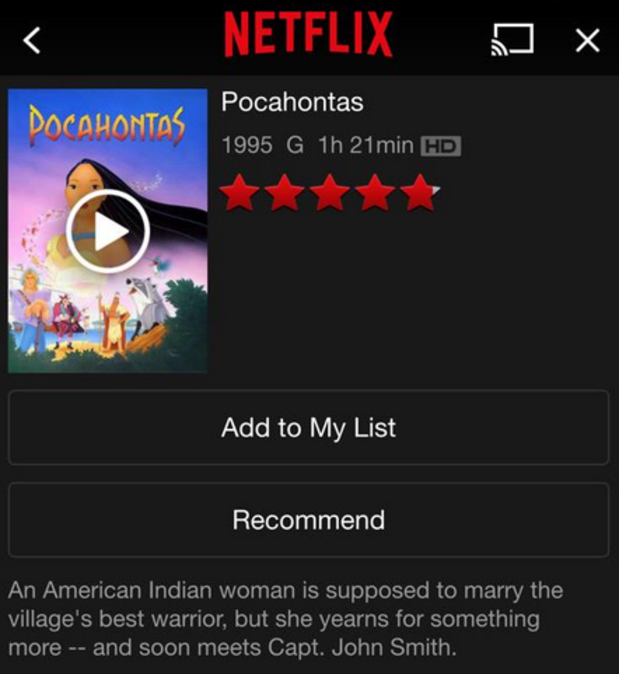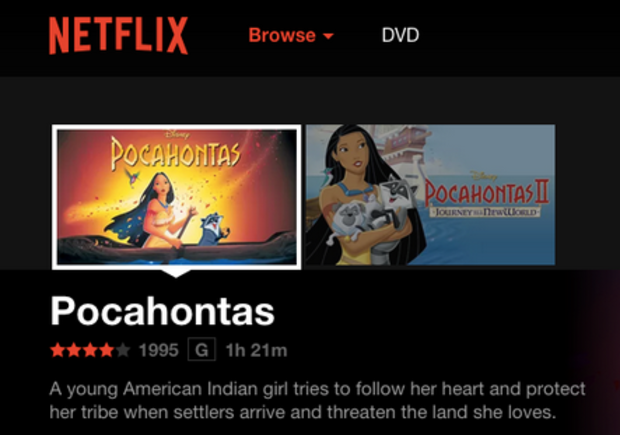Apparently Pocahontas is on @netflix now. Can we talk about this description? pic.twitter.com/tjaqRY9gs8
— Dr. Adrienne K. (@NativeApprops) September 1, 2015
Adrienne Keene, founder of Native Appropriations, wrote an article a few weeks back about how the film’s description reads like a “bad romance novel” and unfortunately reproduces the over-sexualizing of Native women. Her close reading also dives into the colonial implications of the description and the erasure of Pocahontas’ agency. There are problems with the film itself, Keene writes, but with the few representations available it becomes even more crucial to pick words carefully.
Keene received an email a week later from Netflix, which you can read about in the Pacific Standard. Netflix acknowledges the misrepresentation and announces that they’ve changed it (although it seems they haven’t fixed the copy on all fronts, and the old description is still appearing).
Dear Dr. Keene,
Thanks for bringing attention to this synopsis. We do our best to accurately portray the plot and tone of the content we’re presenting, and in this case you were right to point out that we could do better. The synopsis has been updated to better reflect Pocahontas’ active role and to remove the suggestion that John Smith was her ultimate goal.
Appreciatively,
<Netflix employee>
I find it especially notable that Netflix thanks Keene for pointing out the problematic description, because changing it is in everyone’s best interest. They didn’t pull a “sorry you’re offended” or a “you’re being oversensitive,” they listened to the voice of someone who’s directly affected by these media representations and took action.
What do you think about the new description?
(via The Hollywood Reporter)
—Please make note of The Mary Sue’s general comment policy.—
Do you follow The Mary Sue on Twitter, Facebook, Tumblr, Pinterest, & Google +?










Published: Sep 18, 2015 02:37 pm